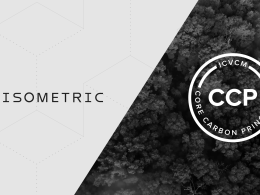Global food and beverage leaders PepsiCo and Unilever have announced the launch of Supporting Trusted Engagement and Partnership for Agriculture (STEP up for Ag), a pre-competitive initiative designed to bolster the capacity and sustainability of farmer-facing support organisations across North America.
The initiative aims to accelerate the adoption of regenerative agricultural practices by equipping local advisory groups with the tools, training and resources they need to better support farmers on the ground.
PepsiCo Chief Sustainability Officer Jim Andrews said the scheme reflects the company’s agricultural roots. “STEP up for Ag is about investing in the organisations that support farmers every day, aiming to ensure they can grow, innovate and lead the transition to more sustainable agriculture. When farmers thrive, we all thrive.”
Regenerative agriculture has been identified as a key pathway to healthier soils, reduced emissions, enhanced biodiversity and improved watershed health. PepsiCo, which sources more than 50 crops from over 60 countries, has set a goal to drive the adoption of regenerative or protective practices across 10 million acres by 2030.
Unilever’s North America Head of Sustainability, Kristina Friedman, stressed the importance of collaboration: “Regenerative agriculture is a big part of how we’re building a stronger, more resilient supply chain and food system. STEP up for Ag can help us move faster and smarter, empowering farmer-led groups with the tools they need and opening doors to more great suppliers to grow our business.”
Canadian farmer Chris Beaudry, a fourth-generation producer and member of the South East Research Farm, praised the flexibility the programme provides: “When you start looking at your soil as having an interdependent relationship with you, then you can start making decisions that benefit you, the crop, and us as humans as well.”
Jim Moseley, former Deputy Secretary of the US Department of Agriculture and a board member of FarmAdvisor, emphasised the importance of peer-to-peer mentoring: “Investing in and supporting these relationships is important because those who have already adopted new conservation practices understand the consequences for the future of our productive soils, our water quality, and a diverse biological community if we don’t.”
STEP up for Ag brings together corporate, philanthropic and farmer-led organisations in a collaborative structure:
- Lead partners, including PepsiCo and Unilever, will fund and collaborate with farmer support organisations to expand advisory capacity.
- Contributing partners will support existing or emerging groups or the wider initiative.
- Philanthropic partners, such as the PepsiCo Foundation and the Platform for Agriculture and Climate Transformation (PACT), will provide catalytic funding and expertise.
- Farmer-facing partners in Phase I include South East Research Farm in Canada, Practical Farmers of Iowa, and Indiana-based FarmAdvisor.
Sarah Carlson, Senior Director at Practical Farmers of Iowa, noted that investment from major companies had been “pivotal”, enabling the organisation to expand its reach and deliver timely technical and financial support to more farmers.
While the initial focus is North America, STEP up for Ag is already extending its reach. A first European pilot will be launched with Spanish cooperative Garlan, supported by the Earthworm Foundation, to design a regenerative agriculture programme tailored to local farmers. The pilot follows earlier workshops in Türkiye hosted by EIT Food.
Bastien Sachet, CEO of the Earthworm Foundation, said: “By working hand in hand with PepsiCo and receiving the support from STEP up for Ag, we can co-design a strong ecosystem around farmers that makes regenerative practices practical, profitable and scalable.”
Over the next two years, STEP up for Ag plans to facilitate peer learning, host annual workshops and develop shared tools and resources to scale adoption. With backing from major corporates and NGOs, the initiative seeks to foster an ecosystem of trust and innovation that will help drive the transition to a more sustainable global food system.





















